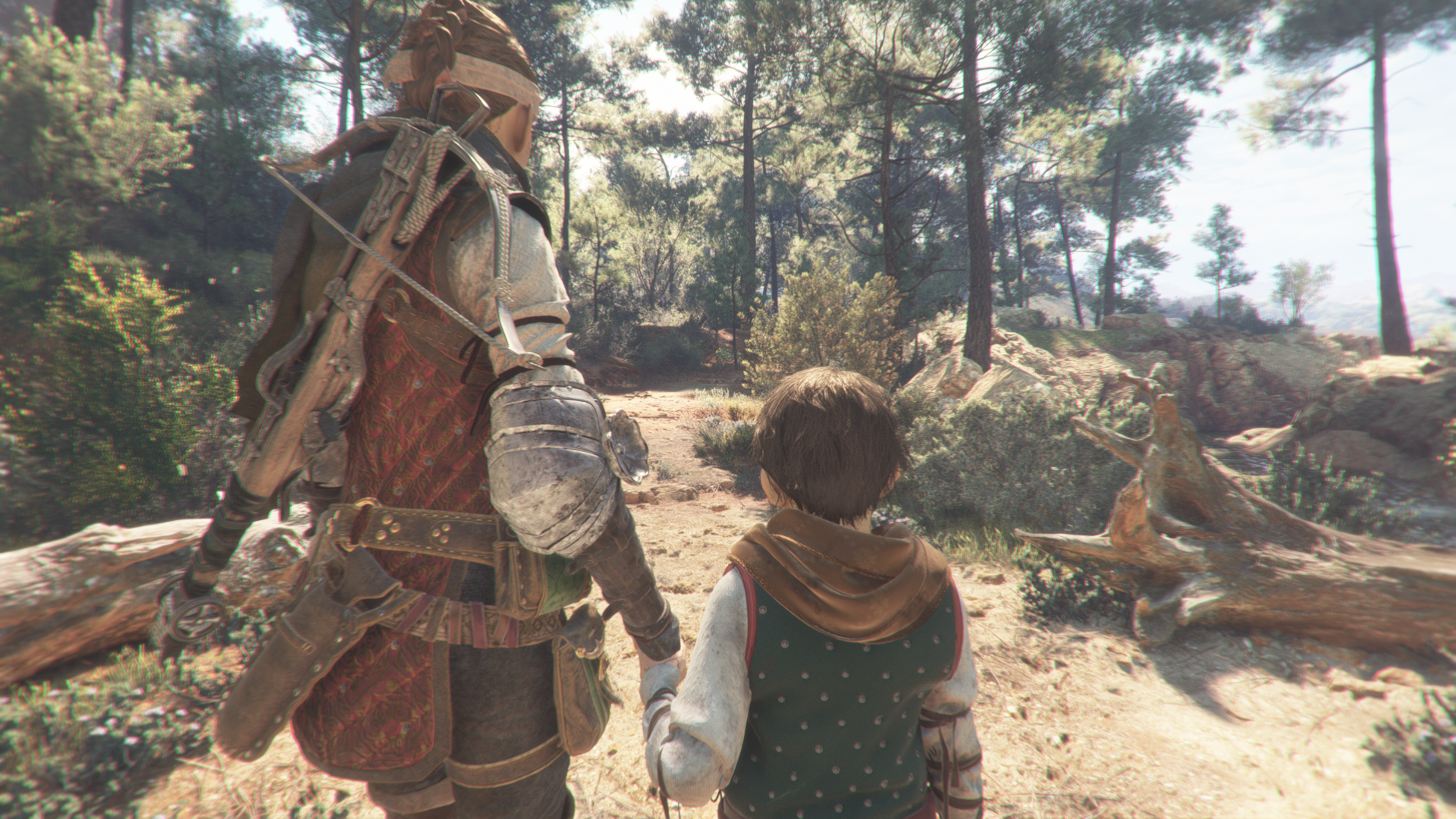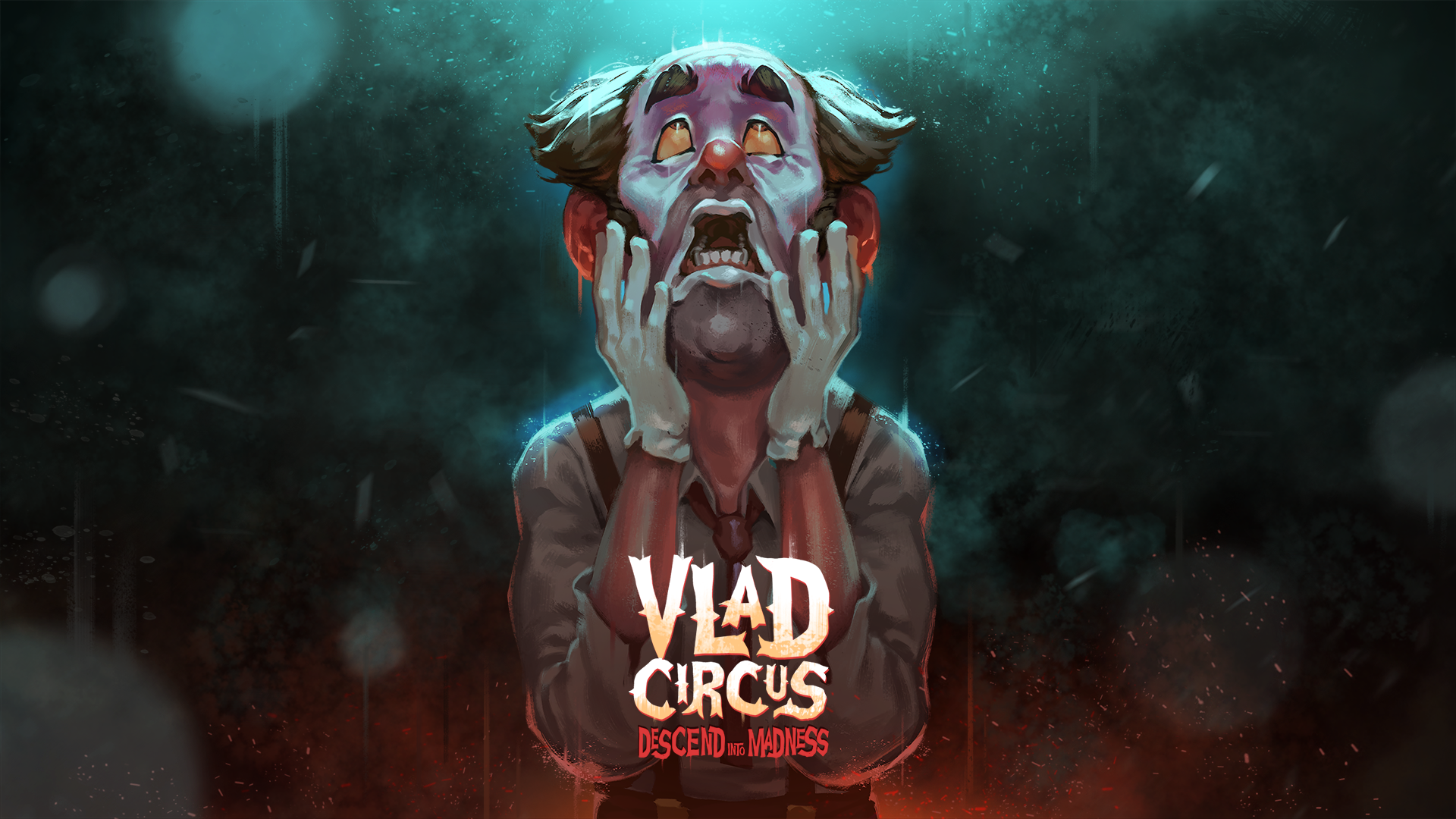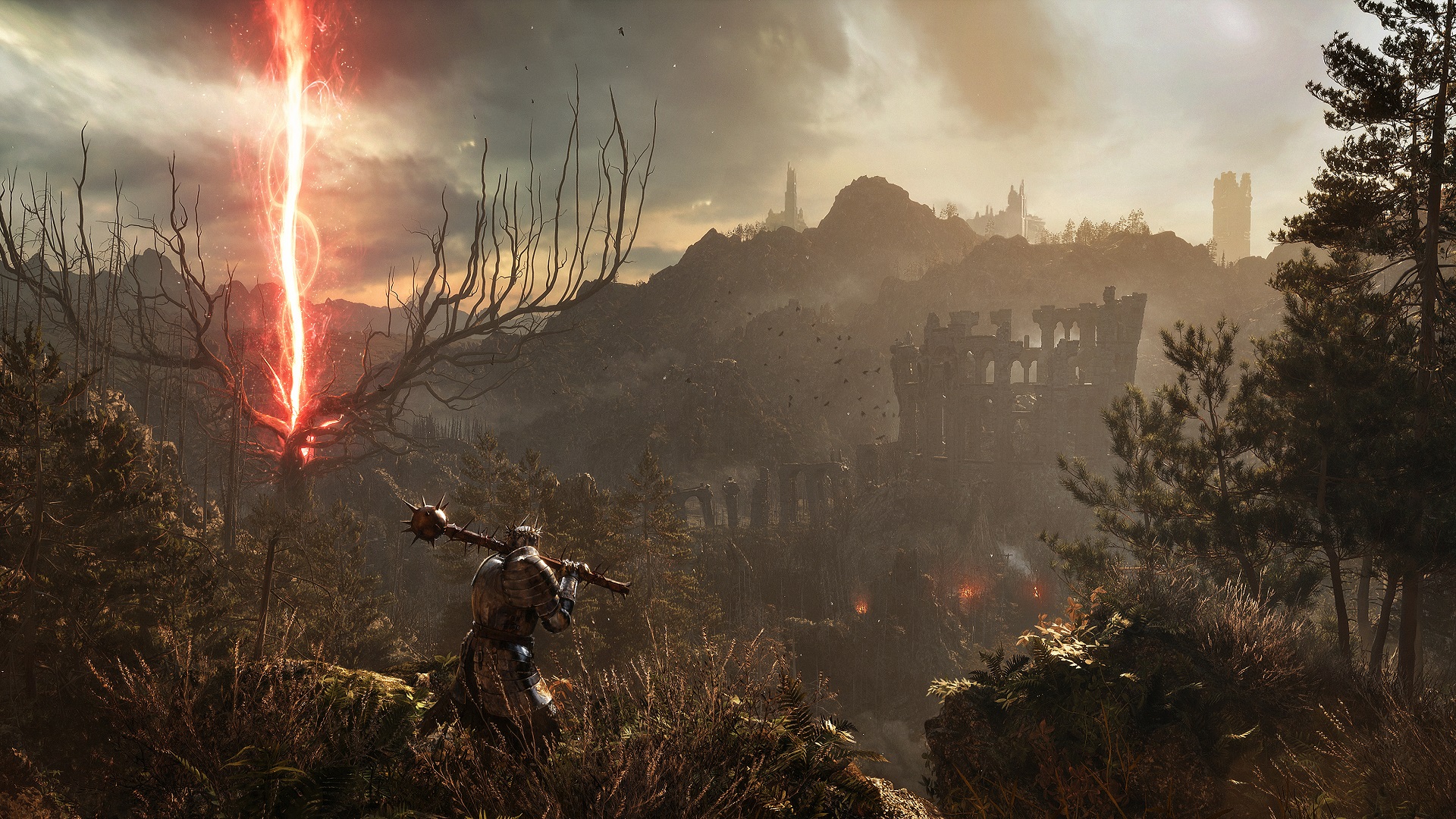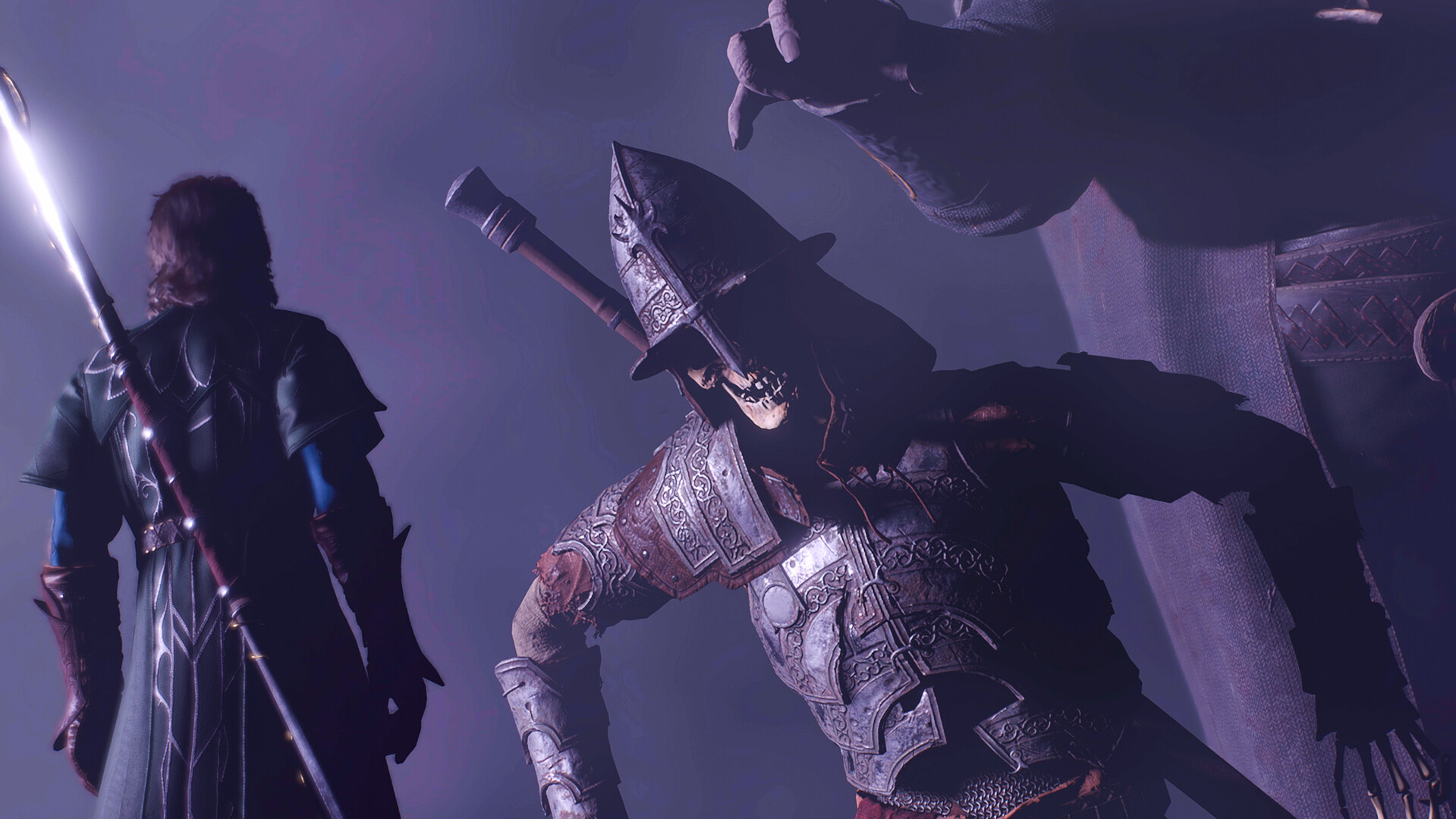
A Plague Tale: Requiem Review – Evolving The Sibling Trauma
Developer: Asobo Studio
Publisher: Focus Entertainment
Available on PC, PlayStation 5, and Xbox Series X|S
MSRP: $49.99
I wrote up an article a while ago about A Plague Tale: Innocence and pushing siblings together in horror. When I did my preview, I wrote about how Requiem seemed to be pushing that to the next level and how excited I was to see where Amelie and Brother would go in the sequel. However, I was not ready for how often and quickly I would yell, “Oh Shit!” At my monitor while playing.

A Plague Tale: Requiem follows Amecia and Hugo as they continue trying to cure the Macula, the disease that makes the rat plague surge in Amecia’s brother. Stakes in A Plague Tale: Requiem are immediately heightened but also more leveled out. In Innoncence, everything seemed like Amecia was there just to deal with the problems, and their relationship started to strained, and she didn’t trust Hugo to do much because he was a small child. By the end, that changed, but it took most of the game to get there. In Requiem, they are equals from the start, with everyone else treating Hugo as a child throughout the game.

In contrast, Amecia knows her brother better than that, and if everyone had just listened to her, things would have been much better. As we follow them on their journey to find out the history of the Maculum and what that means for Hugo, it is intense. I won’t spoil anything here, but throughout the game, there were things we never really got to see in Innocence, pure genuine happiness. It isn’t very long-lasting, but we get genuine moments of joy here from the siblings, which is really beautiful. It makes the Dispare hit harder too. When credits rolled on Requiem, I had a good cry. It is also set up for another game, but not in the way you think, but another journey could be ahead of the siblings.

In A Pague Tale: Innocence, we got these few moments with a third party member only to have them disappear after a chapter, sometimes without closure. That does not happen here. We spend a lot of the game with companions, with only maybe four out of the sixteen chapters being just Hugo and Amecia. The companions here go through some compelling character growth. The only thing that really stood out to me about being odd or out of place was there is a character who, in the span of what feels like ten minutes, switches sides, and it is very jarring, to the point where I had initially thought it was someone from the first game that I just wasn’t remembering. But nope, one minute they are trying to hunt down our siblings, then next, they are swearing their loyalty to us. Very jarring, but the journey that the character goes on, besides the rough intro, is one of my favorites.

There is a lot of moving growth here from everyone, and our bad guy feels like an unstoppable force, with one encounter being like nothing we have experienced in the series so far. It works out so well, but this encounter might severely put off players who are playing more offensive and less stealth. Otherwise, the gameplay here boils down to being a lot like Innoncence but with a lot of improvements. The major change is, at a certain point, we can play full-on the offensive taking down every single enemy instead of stealthing our way around.

Other changes include not having a limited amount of stones for the sling. Instead, we need to worry about arrows later because the crossbow we get is brutal. You’ll use the crafting menu here to craft different shots, from fire shots to light fires, and create a light to an extinguisher to put flames out if you need the rats to deal with a problem. There are a few here that I found myself not using too much, but their inclusion is cool and is probably more helpful during a stealthier run. There is this one that makes flames brighter, and the other is basically bait for the rats. Speaking of, the most significant change here is Hugo’s powers over the rats. We can control them now, which is helpful when you find yourself stuck surrounded by a guard. You can control the rats to devour the guards. This, along with a few other abilities, makes Hugo feel more in control of his powers and, by extension, feels more valuable here, not just a side piece that Amecia always has to save. There will be moments when you will have to rely on Hugo to get yourself out of some sticky situations.

Usual encounters in A Plague Tale: Requiem involve rats, mercenaries, or a mix of the two. When you are dealing with just rats, it’s a game of solving environmental puzzles to create enough light to get to the following sections or running from a literal tidal wave of rats, which, if you thought there were a lot of rats in Innocence, you haven’t seen anything yet. The first time you see a rat wave, it’s impressive and disgusting, and I knew I couldn’t help but shout a few expletives.

When faced with humans, it’s a game of either sneaking around guards, using environmental distractions, or feeding the beast and killing them all, which Amecia will comment on and has its advantages. While you will have plenty of encounters with both, it’s a mix of the two styles, and these were my favorite encounters.

You also have this skill list, which levels up the more you act a certain way. If you stealth more, you get better at sneaking. If you are aggressive, you can do more damage or stun better. Along with this new skill system, the upgrade system is here again but with some quality-of-life changes. Instead of needing specific individual items, all upgrades take the same stuff. For example, tools and parts, which there are plentiful, and I suggest saving for the one that makes it so you don’t need tools anymore. It really helps migrate the need to find difficult-to-find tools to just collecting parts being more critical.

Overall, if you liked A Plague Tale Innocence, don’t think twice. Just play Requiem. If you didn’t, though, know that it is primarily a stealth-based action game with a lot of dread and despair, albeit with a lot less gruesome animal stuff, which was heavy in Innocence. But we get a fantastic continuation of these estranged siblings growing closer and accepting their roles in the world. There were moments of pure joy that made me wish these two could just live in that moment. But also horribly depressing moments that were so heavy, at a few points, I had to stop and just let what just happened sink in. There is this hot and cold when it comes to the emotional journey these two go on, it’s incredible, and I can’t wait to play through it again.

For more interviews, previews, and features, stay locked to DreadXP, and if you are interested, play A Plague Tale: Requiem!




